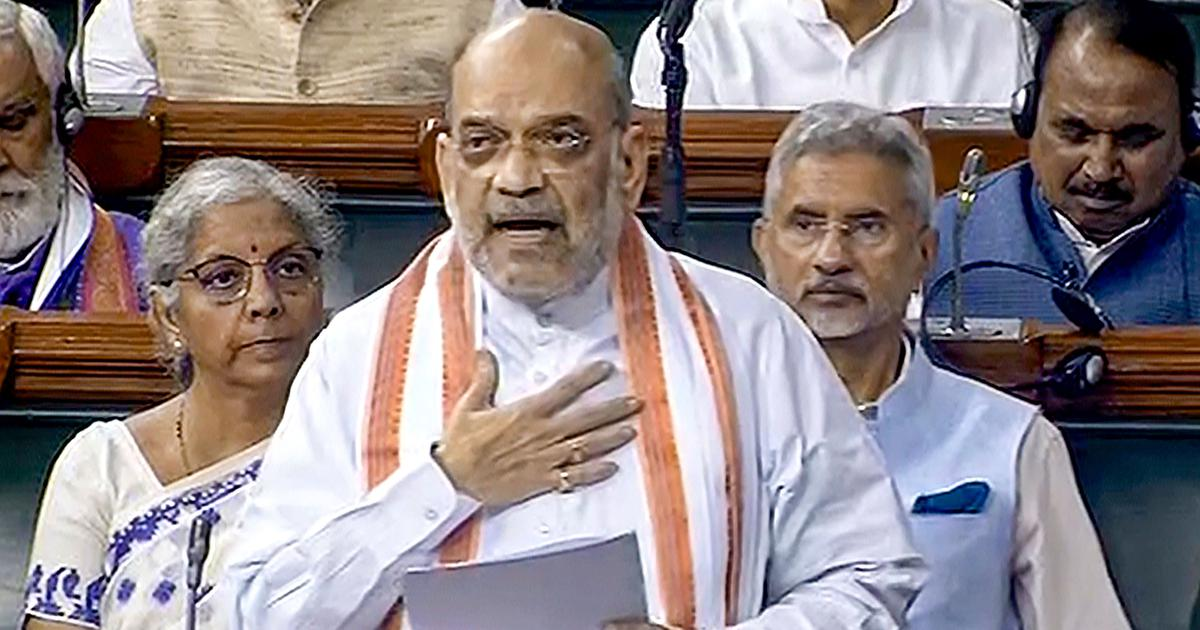Key Criminal Law Revisions on the Horizon: Union Government’s Latest Move
The government is looking to withdraw three bills that propose replacing current criminal laws and reintroducing them based on recommendations from a parliamentary panel.
Today, the bills were withdrawn to include important suggestions from the parliamentary panel, showing a dedication to a more cooperative and improved legislative approach.
Union Home Minister Amit Shah has introduced three bills, the Bharatiya Nyaya Sanhita Bill, the Bharatiya Nagarik Suraksha Sanhita Bill, and the Bharatiya Sakshya Bill after some amendments. These bills have been redrafted by introducing the suggestions of the Parliamentary Standing Committee. The bills were initially introduced on August 11, replacing the Indian Penal Code, 1860, Criminal Procedure Code, 1898, and the Indian Evidence Act,1872 respectively. Soon after the bills were introduced in Lok Sabha on August 11, they were sent to the standing committee for a discussion.
The Parliamentary Standing Committee on Home Affairs, in its November report, places significant importance on the continuation of specific provisions within IPC section 377. Notably, it emphasizes the need to retain safeguards related to carnal intercourse with minors.
The three bills have been forwarded to a parliamentary select committee for a comprehensive review and analysis. These bills are crucial, and Members of Parliament (MPs) have been allocated 48 hours to examine them. Grammatical revisions have been made, and modifications to five sections have been included.
Implementation of Amendments by Union Government
The panel emphasized the inclusion of a section criminalizing adultery in the new Bill. This comes in contrast to the Supreme Court’s 2018 decision to decriminalize adultery. Despite the panel’s recommendation, the government has chosen not to accept this proposal.
A parliamentary panel led by Bharatiya Janata Party MP Brij Lal suggests changing the term “mental illness” to “unsound mind” in the Sanhita. They feel that “unsound mind” is more specific, while “mental illness” is too broad. The committee believes this change is needed to prevent potential problems during trials. They argue that the current wording might allow someone to claim they were under the influence of alcohol or drugs during a crime, making them immune to prosecution. The panel thinks “unsound mind” provides a clearer and more legally sound way to address mental health issues in legal contexts.
The report, accompanied by recommendations, was formally submitted on November 10 following extensive deliberations with the Home Ministry, Law Ministry, and various stakeholders during multiple committee sessions.
The committee’s recommendations have led to proposed amendments in the Bharatiya Nyaya Sanhita Bill, 2023, as stated in the withdrawal announcement. The Parliament presented a new bill to replace the Bharatiya Nyaya Sanhita Bill.
Proposed Legislation: Five Bills, Including Two on Reservation for Women
Three Bills, plus two more focused on women’s representation in the Assemblies of Union Territories in Jammu and Kashmir and Puducherry, are set to be introduced in the Lok Sabha, increase the recognition of women in the society. In presenting the bills to the Lok Sabha, Union Home Minister Amit Shah emphasized that the primary objective of these proposed legislations is to ensure justice rather than mere punishment.
While the current laws primarily aimed to safeguard and bolster the British administration, their emphasis lay in punishment rather than the dispensation of justice. The introduction of the three new laws seeks to replace this approach, fostering a spirit that prioritizes the protection of the rights of Indian citizens. It also aims to foster the secured environment.
